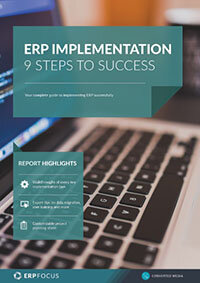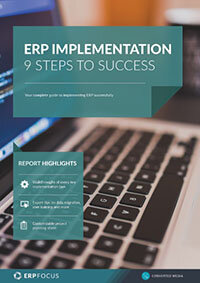4 Events That Will Throw Your ERP Project Schedule
Failure to Educate the Workforce
There’s and old axiom that states; “one can lead a horse to water, but sometimes one has to hit it on the head to get it to drink.” In many cases, this perspective represents the training of an enterprise’s ERP users, since executing effective change management is a typically hard fought bout, requiring many, many rounds before the final bell sounds. A badly executed job can extend an ERP project schedule in a blink of an eye.
ERP systems are complex by their nature, and in this event, the training of enterprise operators is best achieved by leveraging a progressive, and standardized series’ of educational cycles leading to operational efficiencies that can only be realized over time. So be persistent, but above all be patient.
Failure to Understand Infrastructure Strengths/Weaknesses
ERP project schedules are only as ‘good’ as the systems that support them, and infrastructure weaknesses always offer one or more rate-limiting factors. In practical terms, if a complex ERP system is being applied across a rudimentary infrastructure, an enterprise manager should expect a host of fits and starts throughout his/her schedule, leading to lost time and money.
Recommended Reading: ERP Implementation - 11 Steps to Success
These cases are usually most found at the lowest levels of an enterprise’s physical or component structure including weakness with low-level hardware, or the structure’s server/router/gateway complex, given the operation of a traditional on-premise system. Nevertheless, even today’s cloud-based integrations can be plagued with differing infrastructure requirements between an enterprise’s internal structure, versus the needs of one’s cloud-based integration. It is these limitations that can easily force an implementation schedule off track.
Failure to Do a Complete Load Test
Sometimes colloquially known as the, ‘too much stuff through a tin horn constraint’, simply migrating complete data-sets, and asserting that an ability to light up an ERP system doesn’t necessarily mean that an enterprise’s ERP platform is ready for prime time. In the same way that an enterprise’s physical structure exhibits finite limitations, an ERP platform can offer its own versions of this ERP project schedule scourge. This can be clearly avoided by load testing a complete system, end to end, before it’s certified and allowed to go live.
Failure to Identify and Prepare for Proprietary Utility Systems
These little utility gotchas are usually missed at launch, and most appear after the fact. Given the work at hand it may appear that an enterprise’s ERP system represents the entire universe of a company’s systems technology, however, this assertion is never true. Deep in the bowels of every enterprise, dependent and independent systems do the grunt work under the hood. If these proprietary systems are not identified and trimmed in association with the larger ERP system, difficult glitches can occur spontaneously, thereby leading to ERP project schedule problems before a manager knows what is going on.
Free white paper

ERP Implementation: 9 steps to success
The 9 proven steps you should follow when implementing ERP

Related articles
-

Why traditional scheduling systems don't work for custom manufacturers
A guest blog from Genius Solutions discussing ERP and custom manufacturing
-

CMMC Compliance: What Aerospace and Defense Manufacturers Need to Know
Key insights on CMMC compliance, deadlines, and securing DoD contracts with CMMC 2.0 certificatio...
-

A six-step timeline for your ERP selection
Learn about the six steps in an ERP selection timeline and where they fit within an average 29-we...

